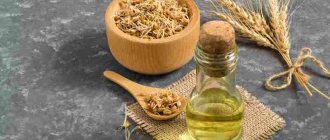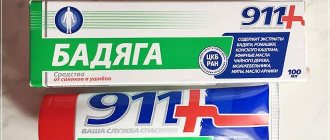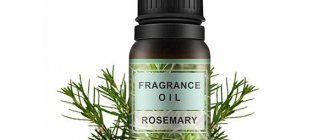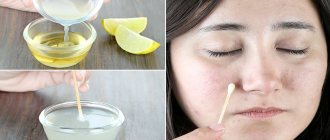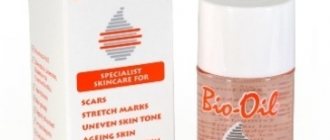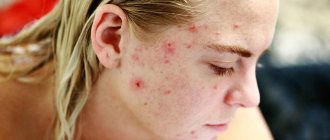Rosemary: benefits and harm for the skin
Rosemary oil is widely available in pharmacies, as well as from manufacturers of natural cosmetics. High-quality essence has undeniable benefits for acne and post-acne.
Helps:
- Destroy pathogenic microorganisms;
- Eliminate the inflammatory process;
- Increase the ability of tissues to regenerate;
- Improve local immunity;
- Narrow pores;
- Reduce swelling;
- Regulate sebum production;
- Get rid of isolated acne elements;
- Cope with scars, pigmentation, small scars;
- Restore moisture balance in the dermis;
- Reduce the severity of wrinkles;
- Achieve soft skin;
- Normalize blood microcirculation;
- Accelerate the healing of chronic psoriasis, dermatitis, eczema.
Pure ethers cannot be used: they can cause itching, redness and even burns. Rosemary oil is intended to enrich finished cosmetics or add to basic foundations. The pronounced smell of undiluted essence also provokes:
- Anxiety;
- Blood pressure surges;
- Dizziness;
- Insomnia when inhaling the aroma before bedtime;
- In rare cases, seizures.
Beneficial features
Rosemary essential extract is highly valued in cosmetology. On an industrial scale, it is added to creams, shampoos, and other facial and hair care products. At home, you can also prepare effective remedies using this product, which is unique in composition and properties. The properties should be given special attention, because rosemary oil has the following effects:
- antioxidant;
- anti-inflammatory;
- tonic;
- painkillers;
- tightening;
- regenerating;
- rejuvenating.
The product is well absorbed into the dermis, penetrating into its deepest layers. Thanks to this ability, the components of the composition begin their work at the cellular level.
The main worthy quality of rosemary oil is its ability to stabilize the sebaceous glands, which is especially useful for oily and problematic skin. With regular use of ether, the skin restores its elasticity, it becomes soft and velvety, its color is evened out, and pimples and age spots disappear.
Rosemary oil for acne: application
The simplest way is to combine rosemary essential oil for acne with a base suitable for your dermis type:
- Oily: mix rosemary oil with jojoba extract in a ratio of 1:3;
- Normal: combine the extract with an oil extract from flax, olive, almond (25% of each ingredient);
- Dry: mix rosemary and apricot oil in proportions 1:2.
The mixture must be applied locally to pimples, after 35 minutes blot with a clean cloth. The procedure is indicated for use every day. For severe acne, treatment up to 3 times a day is allowed.
Cosmetologists and dermatologists recommend adding rosemary oil for acne to the following homemade face masks:
- Mix a tablespoon of milk thistle ether with 2 drops of oil. After 40 minutes, remove the remaining composition with a cloth;
- Pour the contents of the Aevit capsule into a bowl. Add a drop of oil. Lubricate the affected areas, after 20 minutes remove the residue with napkins;
- Grind 12 g of rice in a coffee grinder. Mix with 8 drops of rosemary and a pinch of cinnamon. Steam your face thoroughly before use. After 20 minutes, cleanse your face with water and a few drops of grapefruit juice;
- To a teaspoon of avocado or grape seed oil, add a drop of tea tree and rosemary oil. Gently spread over face until completely absorbed;
- Mix a tablespoon of full-fat cottage cheese and egg yolk. Enrich the mixture with essence in the amount of 2 drops. Keep on the skin for no more than 20 minutes;
- Mash 1 banana until smooth. Add ½ teaspoon of freshly squeezed lime juice to it. Add 9 drops of liquid vitamin E and 8 drops of rosemary oil. Leave on skin for 40 minutes;
- Prepare a mixture of 4 g of black clay, 9 g of white, 5 drops of macadamia oil and 12 drops of rosemary ether. Distribute over the skin for 10 minutes, rinse with chamomile infusion;
- Add 6 drops of essence to 15 ml of aloe juice. Precisely lubricate each papule and pustule;
- Dilute blue clay and kaolin with water until it becomes creamy. Add 5 drops of rosemary. Leave for a quarter of an hour, wash with warm water;
- Dilute 45 g of green clay with ¼ cup of heated water. Add 5 g of honey and a drop of rosemary. Wash off after 20 minutes.
What is rosacea?
With rosacea, small vessels - capillaries - are most often affected. Due to certain reasons, the wall of the vessel loses its elasticity and firmness, which leads to its further expansion.
Manifestation of rosacea on the face
The capillary network is most pronounced in places where there is thin skin - mainly the face, so it is often this that suffers from rosacea.
The main reasons for the development of the disease:
- bad habits: smoking cigarettes, drinking alcohol;
- improper diet, abuse of fatty and spicy foods;
- unfavorable climate;
- constant stressful situations;
- congenital or acquired problems with blood vessels.
Constant stressful situations can lead to rosacea on the face.
Treatment against rosacea on the face should be carried out only after personal consultation with a specialist. Basic recommendations for patients:
- Fighting the underlying disease that caused rosacea.
- Changing your diet and giving up all bad habits, as well as coffee.
- Changing the environment of your communication, possibly work, as constant stressful situations will only aggravate the situation.
- Conduct a course of vitamin therapy.
Following these recommendations, you can safely start using essential oils for varicose veins and spider veins. They will only be beneficial, accelerating the process of treatment and healing of blood vessels.
Rosemary for acne spots
Medicinal rosemary is highly effective against acne spots. The following methods are effective:
- Treat acne spots in the morning and evening with a mixture of 5 ml of sesame oil and 2 drops of rosemary. The sesame base can be replaced with cocoa butter, having previously melted it;
- Combine 5 ml of base base and 2 drops each of tea tree and rosemary ether. Apply as the previous composition;
- Mix equal parts rosemary and sea buckthorn oil. Apply only to pigmented areas, without affecting healthy tissue;
- Apply a few drops of oil to a cotton sponge. Apply to the large remaining mark and secure with adhesive tape. Remove the lotion after 3 hours or if there is a severe burning sensation.
What are the contraindications?
Despite the beneficial properties of many vegetable oils, not all of them should be trusted. Some mixtures will not improve the condition, but will only worsen damaged blood vessels.
Plants that have this effect include:
- dill;
- mint;
- eucalyptus;
- cloves
Also, do not forget about the general rules of hygiene and diligently monitor the condition of the skin on your face. It is recommended to limit visits to baths and saunas, avoid direct sunlight or use solarium services, and use various cosmetic masks and cosmetic procedures with caution.
Efficiency
Oils only work on the skin if used regularly. In this case, the cumulative effect will provide not only the elimination of acne, but also other positive effects:
- Reducing oily shine;
- Facial cleansing;
- Relief leveling;
- Gradual elimination of post-acne;
- Increased tone;
- Elimination of open comedones;
- Prevention of dermal aging.
The speed at which results are achieved depends on the extent of the lesion, the causes of acne and individual sensitivity to the composition.
Precautionary measures
Ether should not be used if at least one of the following contraindications is present:
- Hypertension.
- Pregnancy and age up to 7 years.
- Particularly sensitive skin.
- Tendency to allergic reactions and frequent seizures.
- Personal intolerance.
- Epilepsy.
In some conditions, it is the aroma of rosemary oil that plays a decisive role - it can cause an attack of illness. Therefore, before the first use, it is imperative to carry out an allergy test.
Reviews
Essential oils are gaining popularity not only as a basis for aromatherapy, but also for use in home cosmetics. Users rate rosemary as an anti-acne product highly. Reviews confirm the beneficial complex effect on the skin of the face and body.
Tatyana, 35 years old: “I use rosemary to combat post-acne. The effect does not appear immediately, but it is sustainable. I don’t have any special scars, almost no scars either, but the pigmentation is terrible after treatment with Roaccutane. It took 3 weeks of regular treatments and compresses for the skin to begin to lighten. I continue on, I hope that soon my face will be completely cleared of these terrible spots.”
Irina, 21 years old: “The first experience with rosemary oil was unsuccessful, but then I realized that the cheap product was most likely produced in violation of technology. I “splurged” on expensive essential oil from a manufacturer that specializes in oils and started making masks. Things went well. There are significantly fewer acne spots, redness and irritation have gone away. I will also use this remedy for prevention.”
Ekaterina, 29 years old: “Rosemary is my constant assistant in the fight against oily skin and acne. When ulcers appear, I mix it with tea tree and avocado oils. It helps a lot if you cauterize it regularly. At the same time, I use a black mask from China, as well as Intraskin spot cream. The combination works excellently, it was recommended by my cosmetologist who took courses in Britain.”
Product Description
A valuable oil extract in industrial production is obtained from young shoots and leaves of an evergreen tropical subshrub belonging to the Lamiaceae family. Rosemary officinalis is a very heat-loving plant that is found mainly in regions with tropical and subtropical climates.
But decorative varieties of this useful representative of the flora take root well in the southern regions of Russia, and some species are successfully grown even on a home windowsill. Therefore, any housewife can obtain rosemary oil for cosmetic needs if desired.
True, special equipment is used to produce etherol, since the product is obtained by steam distillation. At home, a simpler method of maceration is used, in other words, infusion of a plant base on any base oil.
Rosemary oil can be used in its pure form or combined with other natural ingredients.
